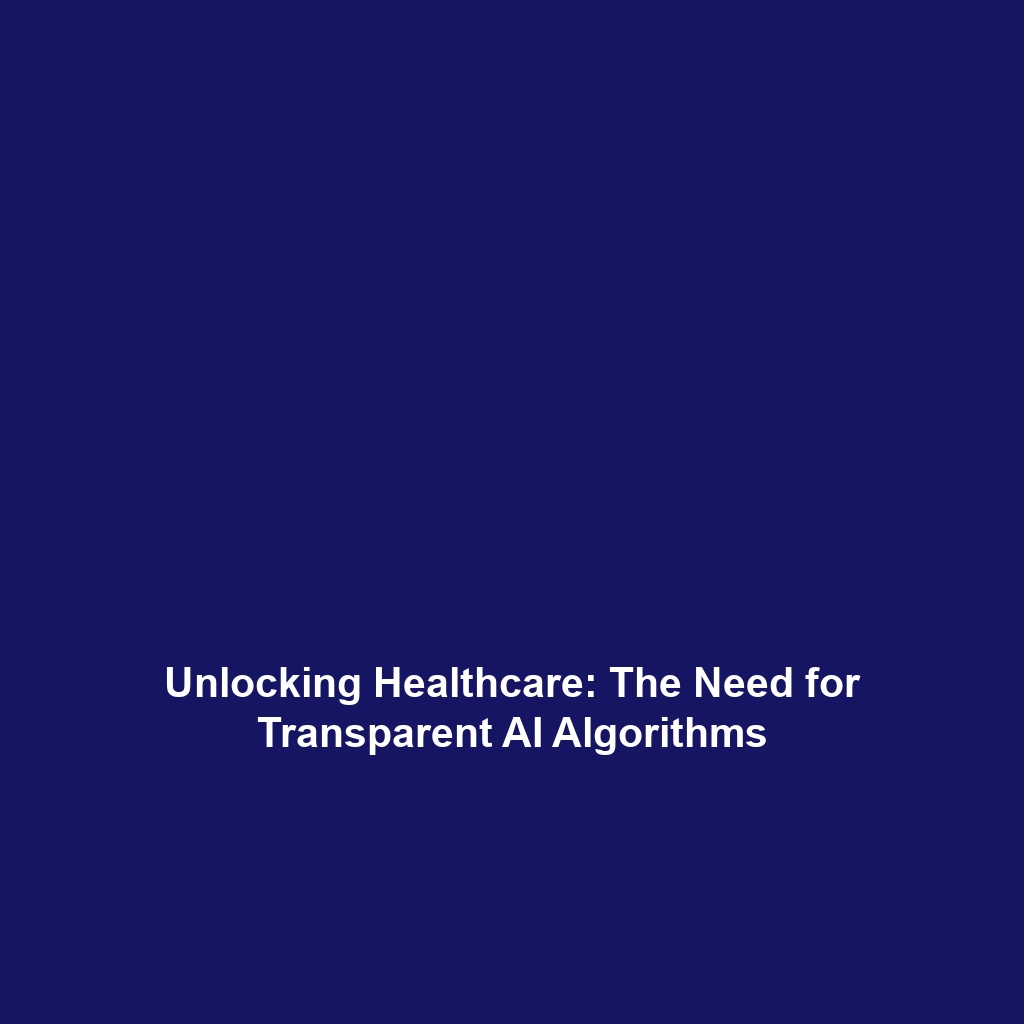The Need for Transparent AI Algorithms That Explain Decision-Making Processes in Healthcare
As artificial intelligence continues to transform the healthcare landscape, the demand for transparent AI algorithms that elucidate decision-making processes has become increasingly critical. Understanding the rationale behind AI decisions is vital for healthcare professionals, patients, and regulatory bodies, setting the foundation for trust and accountability in AI-assisted medical practices. This transparency is not merely a technical requirement but a clinical necessity to ensure patient safety and informed consent in AI applications.
Key Concepts of Transparent AI Algorithms
Transparent AI algorithms refer to systems that allow users to comprehend how decisions are made, fostering trust and facilitating effective human-AI collaboration. In the context of AI in healthcare, some significant concepts include:
- Explainability: The capability of the AI system to offer insights into the factors that lead to specific decisions.
- Accountability: Ensuring that stakeholders can be held responsible for AI-generated outcomes.
- Interoperability: The ability to integrate AI systems with existing healthcare frameworks while maintaining clarity in operations.
Applications and Real-World Uses
The implementation of transparent AI algorithms in healthcare is evident in various practical applications:
- Predictive Analytics: AI models that analyze patient data to predict disease progression often provide explanations by highlighting key indicators that influenced predictions.
- Clinical Decision Support Systems (CDSS): These systems utilize transparent algorithms to suggest treatment options, enabling clinicians to understand the reasoning behind recommendations.
- Personalized Medicine: AI systems that suggest personalized treatment plans are better received when they transparently communicate how patient data led to specific recommendations.
Current Challenges
Despite the benefits, there are notable challenges surrounding the need for transparent AI algorithms in healthcare:
- Complexity of Models: Many AI models, especially deep learning algorithms, operate as “black boxes,” making them difficult to interpret.
- Regulatory Compliance: Aligning transparent AI algorithms with varying global regulations remains a significant hurdle.
- Data Privacy: Ensuring patient data confidentiality while providing sufficient insight into decision-making processes is a delicate balance.
Future Research and Innovations
Exciting advancements are on the horizon for transparent AI algorithms in healthcare:
- Next-Generation Explainability Tools: Innovations aimed at enhancing model interpretability will likely emerge, improving the ability to understand AI decision-making.
- Integration with Telehealth: As telehealth grows, research will focus on transparent algorithms that can effectively assist remote diagnostics and treatment recommendations.
- Interdisciplinary Collaboration: Future studies involving collaborations between AI experts, healthcare professionals, policymakers, and ethicists are anticipated to foster responsible AI usage.
Conclusion
In summary, the necessity for transparent AI algorithms that explain decision-making processes is a cornerstone of ethical and effective AI in healthcare. By understanding the interplay between AI technology and clinical application, stakeholders can enhance patient trust, ensure regulatory compliance, and ultimately improve healthcare outcomes. As the future unfolds, ongoing research and collaboration will be paramount in overcoming existing challenges and harnessing innovative solutions. For more insights on related topics, consider exploring our articles on AI Applications in Healthcare and Ethical Considerations in AI Development.
